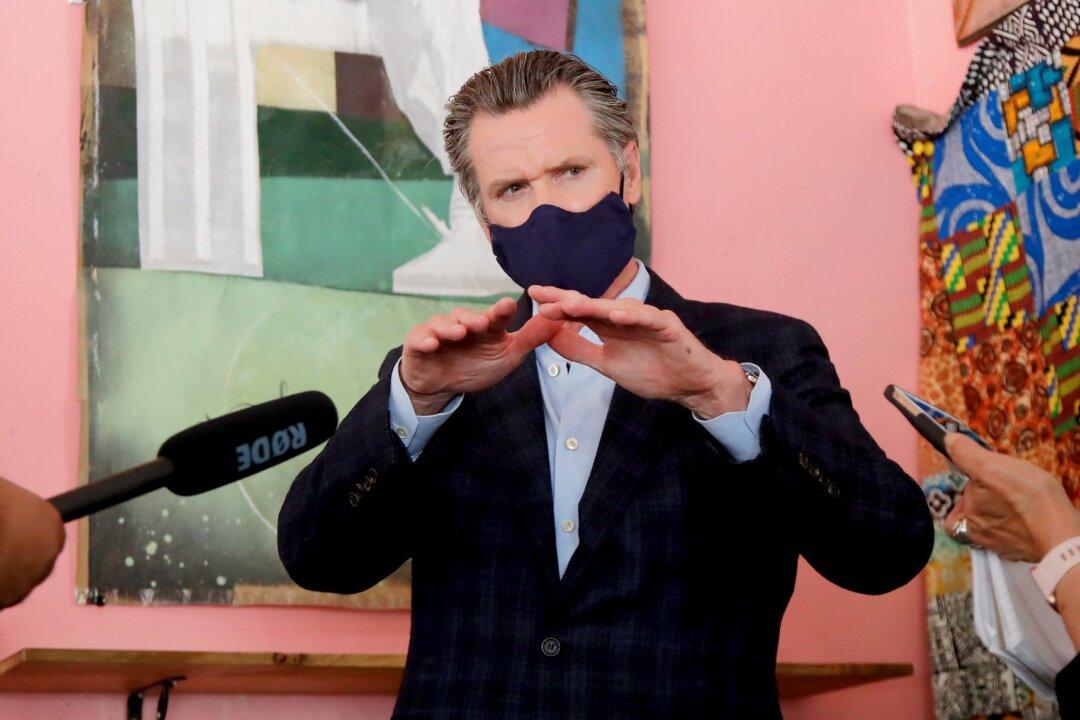Two small businesses in central California are suing Gov. Gavin Newsom over his strict continuing lockdowns purportedly aimed at combating the COVID-19 pandemic.
The 109-page lawsuit, Ghost Golf Inc. v. Newsom, filed in Fresno County Superior Court by Pacific Legal Foundation (PLF), a public interest law firm based in Sacramento, claims the governor lacks the power to unilaterally shutter businesses.





